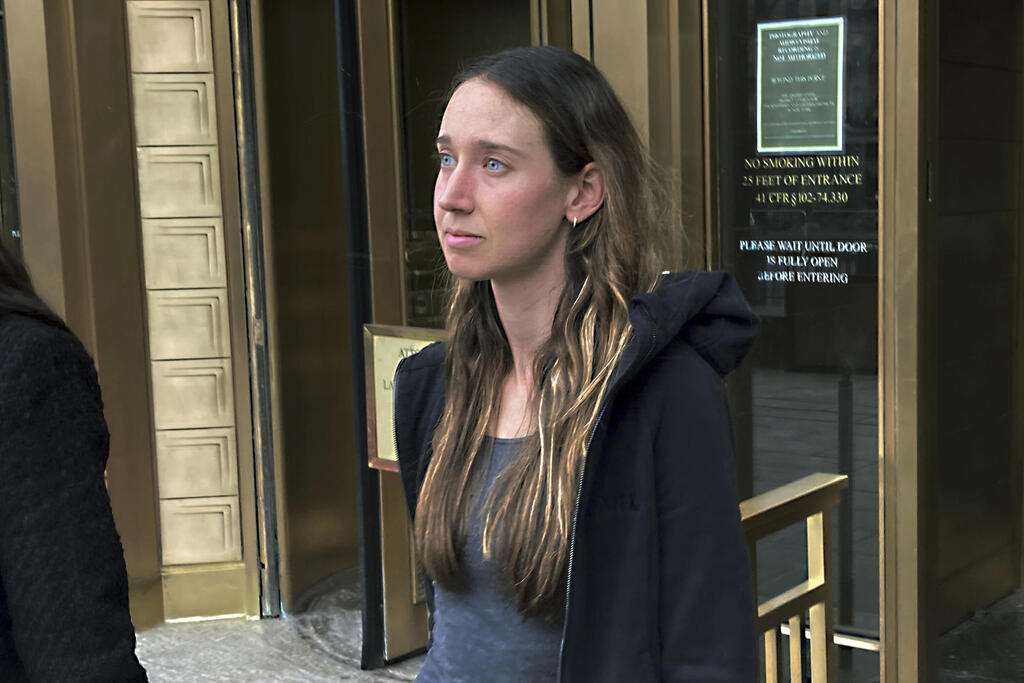
"Their lies caught up with them": Charlie Javice convicted in JPMorgan fraud case
Former fintech star and her Israeli co-defendant Olivier Amar have been found guilty of deceiving JPMorgan in $175 million acquisition.
Charlie Javice, once celebrated as a rising star in the fintech world, was convicted on Friday of defrauding JPMorgan Chase into buying her college financial aid startup, Frank, for $175 million. A jury in Manhattan federal court found Javice and her co-defendant, Israeli Olivier Amar, guilty on all four counts they faced: securities fraud, wire fraud, bank fraud, and conspiracy. The verdict marks the dramatic downfall of an entrepreneur once lauded for simplifying the student financial aid process and securing one of the largest fintech acquisitions in recent years.
The conviction follows a five-week trial before U.S. District Judge Alvin Hellerstein, where prosecutors laid out a detailed scheme in which Javice and Amar allegedly fabricated Frank’s customer base to inflate its value before selling it to JPMorgan in July 2021. The two now face the possibility of decades in prison, with Amar’s sentencing set for July 23 and Javice’s for August 26.
A fraudulent foundation
According to prosecutors, Javice assured JPMorgan that Frank had 4.25 million student customers when, in reality, the company had just 300,000. To support this deception, Amar allegedly purchased lists of fake student data from third parties, which the pair then presented as legitimate customer records.
"While Javice and Amar may have thought that they could lie and cheat their way to a huge payday, their lies caught up with them," Acting Manhattan U.S. Attorney Matthew Podolsky said following the verdict.
The scheme unraveled when JPMorgan attempted to market its financial products to Frank’s purported customer base, receiving far fewer responses than expected. This discrepancy triggered an internal investigation that ultimately exposed the fraudulent numbers. The bank later shut down Frank entirely, and CEO Jamie Dimon has publicly called the acquisition a "huge mistake."
A courtroom battle over due diligence
Javice’s defense, led by high-profile attorney Jose Baez, argued that JPMorgan had conducted extensive due diligence before finalizing the acquisition and that the fraud allegations were merely an excuse for the bank to back out of the deal. Baez contended that regulatory changes had made Frank less valuable to JPMorgan, leading to what he described as "buyer’s remorse."
"JPMorgan knew how many clients Frank had before completing the purchase," Baez told the jury. "The fraud claim only came when they wanted to escape the contract."
Amar’s defense took a different approach, portraying him as a peripheral figure in the alleged fraud. His attorney, Sean Buckley, said after the verdict, "He intends to continue to fight these charges."
Neither Javice nor Amar testified during the trial, and their legal teams have not indicated whether they plan to appeal the verdict.
A cautionary tale in fintech
Javice’s conviction serves as a stark warning about the perils of deception in the high-stakes world of fintech startups and venture-backed acquisitions. Frank, which Javice founded in 2017 while studying at the University of Pennsylvania’s Wharton School, was marketed as a groundbreaking platform to help students navigate financial aid applications. The startup’s rapid growth landed Javice on Forbes’ "30 Under 30" list in 2019 and attracted JPMorgan’s interest as the bank sought to expand its foothold in the student loan market.
But the case has underscored the risks associated with aggressive valuations and fast-growing startups where oversight can sometimes be insufficient. It also raises questions about the thoroughness of corporate due diligence in high-profile acquisitions. Despite its sophisticated vetting processes, JPMorgan failed to detect the alleged deception until after the deal was completed.
The road ahead
Beyond the criminal convictions, Javice and Amar remain embroiled in legal battles with JPMorgan. The bank sued them in December 2022, accusing them of fraud and misrepresentation. Javice countersued, claiming JPMorgan wrongfully terminated her and owes her millions in severance. The pair have also sued the bank in Delaware Chancery Court to recover legal fees.
Meanwhile, Javice’s post-trial fate is uncertain. A judge will decide on April 1 whether she will be subjected to full-time location monitoring. Her lawyer, Ronald Sullivan, argued that such restrictions would interfere with her ability to work—stating that she currently earns a living teaching Pilates.
As she awaits sentencing, Javice’s conviction represents a stunning reversal for an entrepreneur once hailed as an innovator. Once at the center of a fintech success story, she now faces the very real prospect of spending years behind bars—an outcome that serves as a stark reminder of the consequences of financial deception.
Reuters contributed to this report
Charlie Javice interview with CTech in 2020
(live4u)

















